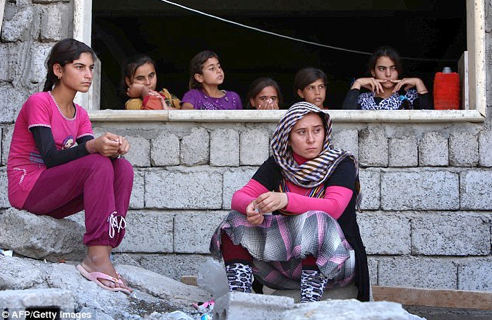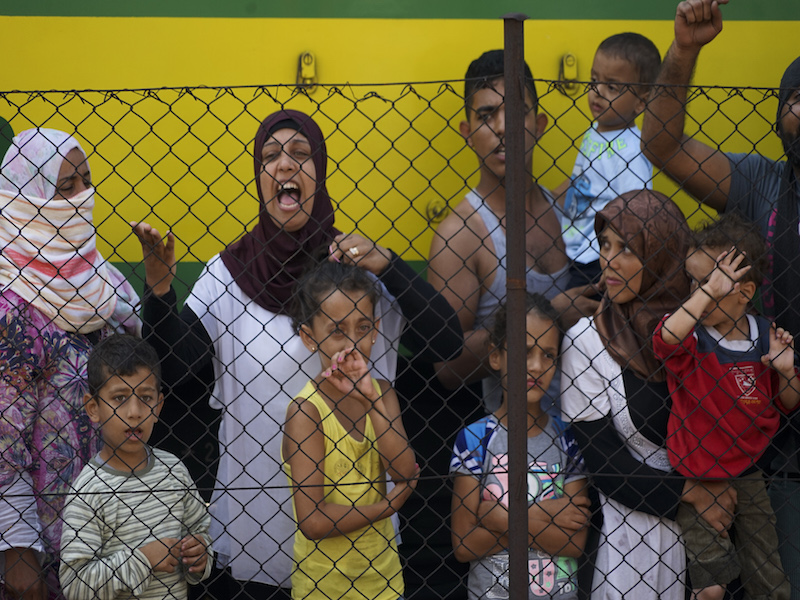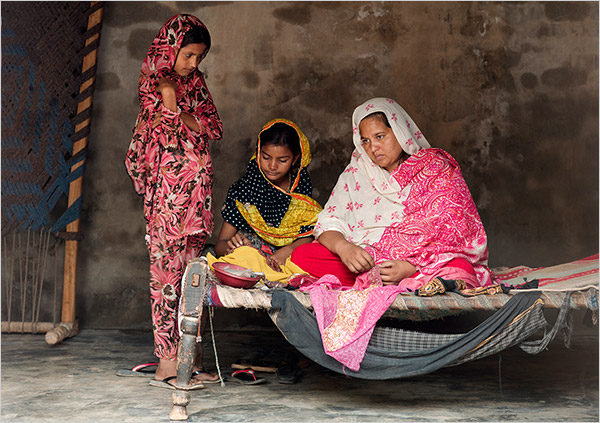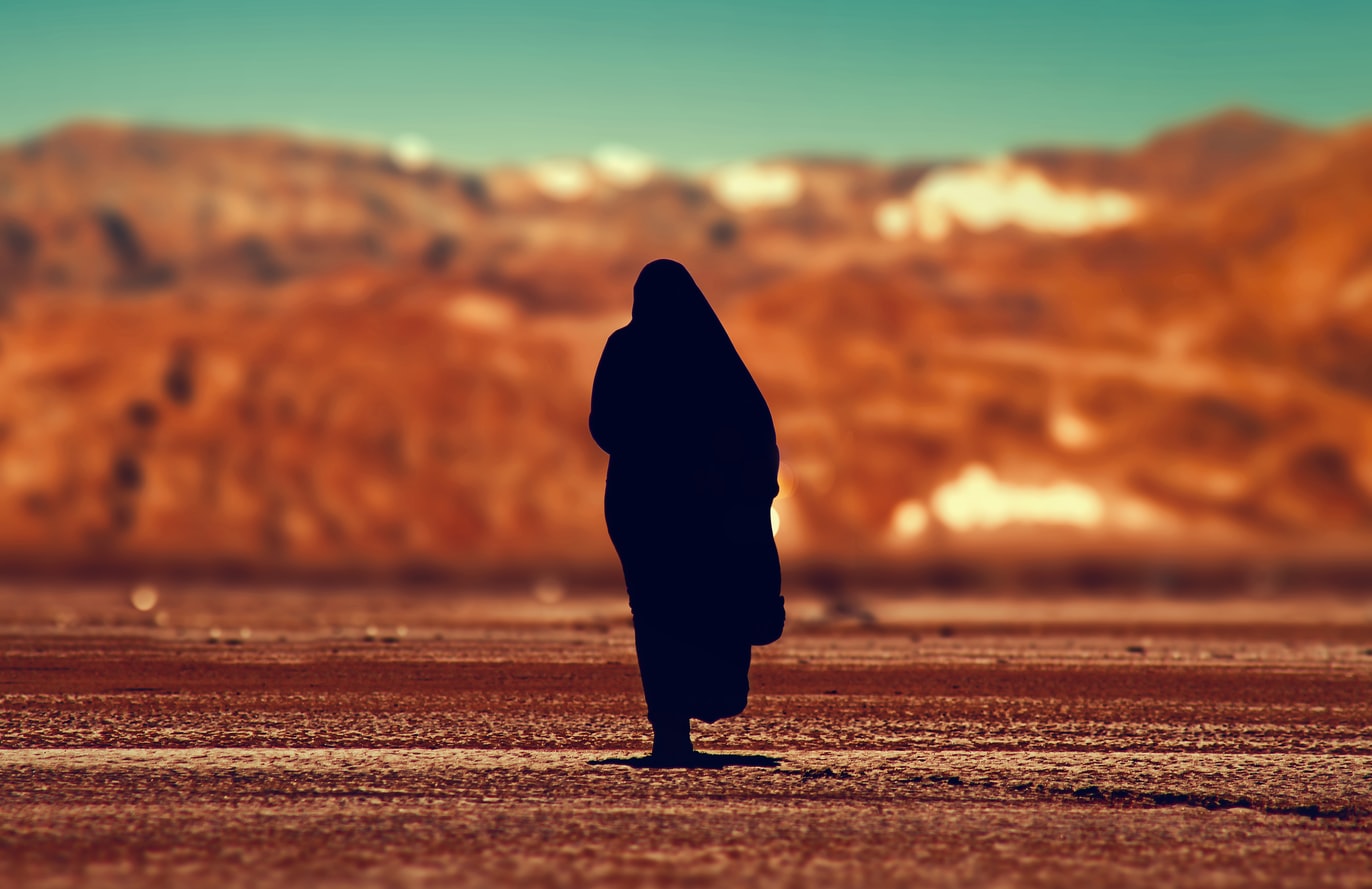Over the last several weeks, North America’s television screens have been flooded with what some international authorities are calling a ‘Christian genocide’ in Iraq. A self-proclaimed jihadist group, the Islamic State of Iraq and Syria (ISIS) has been systematically displacing, targeting and killing thousands of Christians across Northern Iraq. As ISIS’ desire to create an Islamic caliphate (an Islamic state led by a supreme religious and political leader known as a caliph; i.e, ‘successor’ to Muhammad) that stretches from Syria to Iraq endures, little is being reported on the plight of women in the region.
Recent international sources are reporting that women belonging to the Yazidi (predominantly ethnically Kurdish) and Christian religious minorities in Iraq are being raped and sold into slavery. Since June, fatwas have been issued, calling for Iraqi women in Mosul, as well as all Arab women to practice sexual Jihad and submit themselves voluntarily to the Jihadists fighting the Iraqi Army. ISIS militants are using Jihad Al-Nikah or ‘sexual Jihad’ to control and subjugate women. Vian Dakheel, a Yazidi female MP who addressed the Iraqi parliament last week, despite the speakers telling her to stick to the agreed statement, said that Yazidi women are being taken as slaves and being sold in the slave market. Yanar Mohammed, founder of the Organization of Women’s Freedom in Iraq (OWFI), a grassroots campaign which focuses on advocating for women’s rights in Iraq recently described the horrific events occurring on the ground:
“Three days after the invasion began, the militants were knocking on doors asking for unmarried women. We were told that 13 were taken from their homes and raped. More were taken later. The militants said it was their duty to serve the needs of the jihadists.”
The forms of oppression the Iraqi women are experiencing are not uncommon during armed conflict. Often used as a strategic weapon of war, the systematic rape of women not only destabilizes communities and terrorizes civilian populations but also forces women and children to flee their homes creating an influx in refugees and internally displaced persons (IDPs). Once attacked many flee their homes due to the cultural stigma associated with being a survivor of rape. Rebel groups use this cultural value to manipulate women into thinking that they are worthless, demoralizing entire communities through sexual violence against wives and daughters. Women end up feeling that they have brought a ‘curse’ into their villages. For this reason, many flee their country of origin with little hope of re-joining a reputable community.
Contrary to popular belief, Iraqi women have not always experienced the same forms of gendered and economic oppression as they do now. In fact, in the second half of the twentieth century, the emancipation of women took significant steps forward as a result of the Ba’ath regime and their commitment to women’s education and workforce participation (this is not to discount the gross human rights abuses perpetrated by the same party). However, since the sectarian violence has erupted over the last six months, gender-based violence has resurfaced and a new war is being waged against women’s bodies.
Underscoring the plight of Christian and Yazidi women in Iraq is not to discount the religious sectarian violence occurring throughout the region but rather it is to understand and acknowledge the double disenfranchisement that a Yazidi woman experiences, not only because she is a religious minority but also because she is a woman. Unfortunately, the ‘epistemic violence’ of colonial mentalities still plagues us today, presenting a monolithic experience of women in the Middle East. For many in the West, the term ‘Arab world’ is used almost synonymously with ‘Muslim world’ when considering gender justice, which means there is an assumption that all women are Muslim. This contributes to the silencing of the diverse voices of women belonging to religious minorities.
For too long, the international community has obscured the experience of the Iraqi woman, ignoring difference and silencing stakeholders. Let MP Vian Dakheel’s plea reach the ears of more than her Parliament: “Brothers, away from all political disputes, we want humanitarian solidarity.” Let the international community hear her cries and take action.





